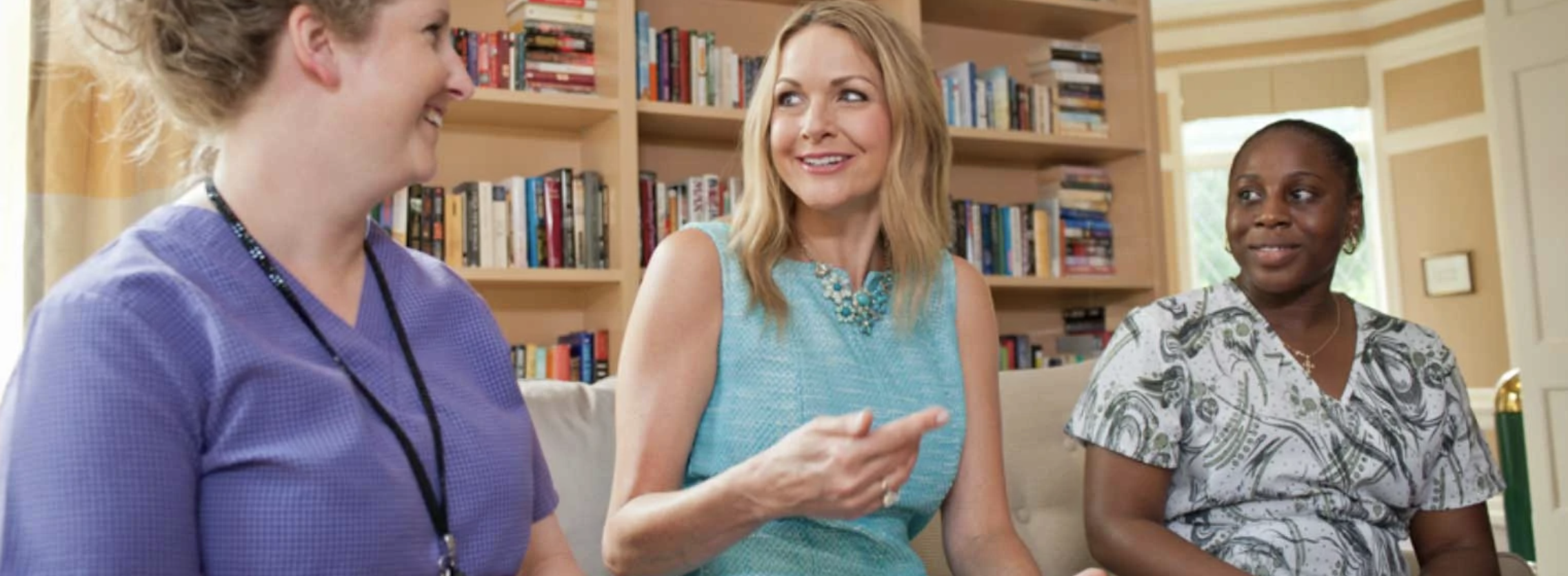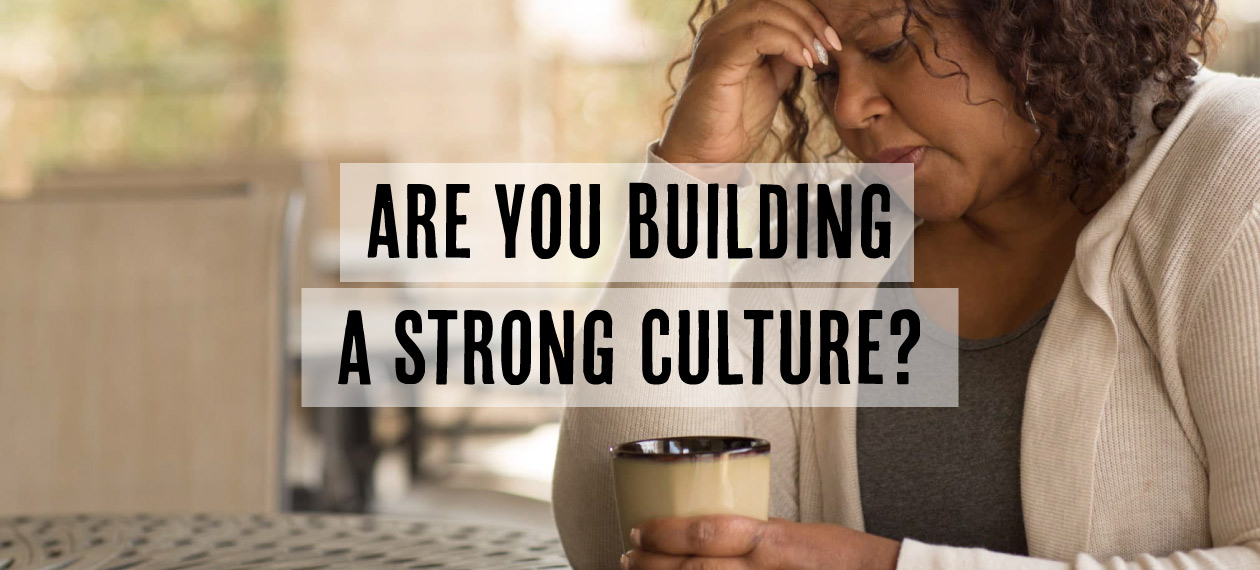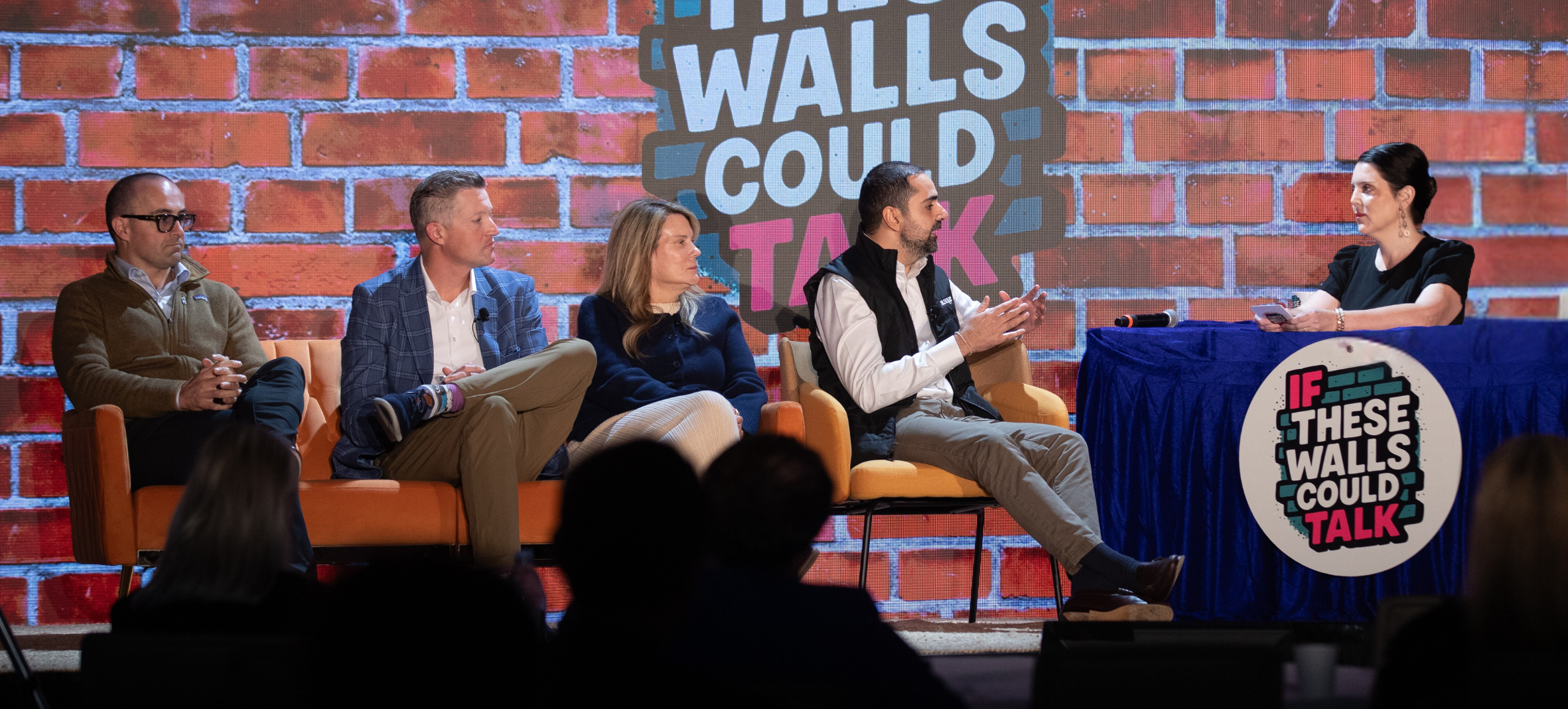The senior living industry doesn’t have a workforce problem: it has a culture problem. So argues Denise Boudreau, founder of Drive, a culture consultancy that optimizes recruitment and retention. Based on extensive research and her own experience in the field, where she rose from dietary aide to CNA to executive director, she believes that providers are far from helpless victims of an externally imposed crisis. In many cases, the crisis is of their own making – which means they have the power to end it.
In an illuminating talk at SLIF Fall, Boudreau made a persuasive case for the senior living industry to revolutionize its approach to company culture. “Culture is our silver bullet,” she said. “Culture is what's going to save us.”
Relationships + Purpose = Culture
Organizations looking to improve culture should be careful not to fall into an easy trap: confusing culture for engagement. As Boudreau explained, culture is “the way things work” in a company, whereas engagement is “how people feel about the way things work.” The distinction may seem small, but it’s crucial. If you’re only measuring how people feel, that means you’re not actually measuring how things work.
This can have devastating consequences. Research conducted by MIT in 2021 found that a toxic culture is 10.4 times more likely than compensation issues to drive people out of an organization. “That stat should scare you,” Boudreau said, citing Drive’s own research into the subject. "We know for a fact that relationships are the most important part of culture for the people that work in senior living."
Then there’s the other important part: purpose. Approximately 59 million people are working gig jobs right now, a number expected to reach 85 million by 2027. In 2021, meanwhile, 5.4 million people started their own business, a number that rose from 4.9 million people in 2020. At the same time, millions more people are retiring than usual. What these figures reveal, Boudreau argued, is that the workers of today are doing what they want to do.
"People are gonna retire and get out because they want something different," she said. "They're gonna have a gig job because they want something different, they're gonna start their own business – unless we can meet their needs in a different way, with things that they cannot get in a gig job, in their own business, or in retirement.”
“Culture Is Driving Our Financials”
So what’s holding the industry back? In short, a widespread failure to accurately measure culture. When Boudreau asks executives how they know their companies have a fabulous culture, all too often they respond by telling her it’s a gut feeling – an evidentiary standard that certainly wouldn’t pass muster for other KPIs. “We say we can feel it, but we would never do that with our financials,” she observed. “And yet culture is driving our financials.”
Organizations that don’t effectively measure their culture likely don’t know if they’re suffering from cultural entropy: negative elements like long hours, poor communication, siloing, bullying, needless bureaucracy, and managerial arrogance that work to push employees away. These may be more widespread problems than many executives realize. According to research by Deloitte, 88% of business leaders said they’re not particularly good at developing culture in their organizations. Only 28% said they understand their cultures.
“The culture of your company is being defined by the worst behavior that you're willing to tolerate,” Boudreau argued. Leaders who don’t know what they’re tolerating may not know how bad the problem is – or what’s required to fix it.
The Difference Culture Makes
Drive’s research into the senior living industry reveals a wide disparity between existing workplace cultures and what workers are looking for. The top 10 cultural values employees describe under current paradigms are Teamwork, Caring, Customer Satisfaction, Safety, Confusion, Compassion, Cost Reduction, Accountability, and Continuous Learning. The top 10 values they seek, meanwhile, are Accountability, Teamwork, Caring, Employee Recognition, Continuous Improvement, Compassion, Coaching and Mentoring, Employee Engagement, and Open Communication.
The differences between these two lists are nothing to sneeze at. As Boudreau stressed, the absence of “Respect” in the first one speaks volumes. Her research also shows that senior living organizations in the top quartile for culture enjoy 38% lower turnover than those with poor culture. In the broader corporate world, companies with strong cultures report three times the revenue growth, over a period of three years, than those with weak cultures. A case study focusing on a senior living organization with 31 communities found that as it reduced its culture entropy – from more than 20% to less than 6% – its occupancy rose from 66% to 94%.
"That's the difference that culture makes," she said. "It's impacting turnover, it's impacting revenue, and it's impacting occupancy.”
“Tell People They’re Making a Difference”
Building on the work of social entrepreneur Aaron Hurst, Boudreau argued that the world is trending towards a purpose-based economy. When people’s basic needs are met and they’re living longer lives – and retiring later and later – they want their work to have purpose, especially in a world wracked by economic instability and turmoil.
In theory, this makes senior living an ideal option; in practice, people don’t see it that way. “What do you think people think of senior living?” she asked. “It’s depressing. It’s kind of stagnant. It's old school. Institutional. And what do we want people to think? It's rewarding. We make a difference. It's sexy.”
Solving the industry’s culture problem – and therefore its workforce problem – means embedding that sense of purpose into every aspect of its operations, from job ads and interviews to new employee orientation and daily meetings. “Tell people they’re making a difference, make that link for them,” Boudreau said. “So your values, your mission, your purpose and organization become not on the wall – not just on the name tags – but something that people are living and breathing every single day.”
“The more that you all talk about it, the more your teams are gonna talk about it,” she added. “And the more your teams of leaders are talking about it, the more your staff are going to feel it and the more your customers are gonna feel that.”
“The Revolution Begins With Us”
It also means treating employees with the respect they seek, which Drive’s research suggests is the most important aspect of a successful culture. “First: respect, recognition, and accountability," she said. "If you're focusing on other things and they're falling apart, and you're spending money and you can't figure out why, you're probably focusing on the wrong thing for where your organization is.”
In practical terms, Boudreau recommended that organizations make culture an executive-level priority, ensuring that leaders have a real-time view into what employees are experiencing at the ground floor. “The people working on culture should be part of your C-suite," she said. "They're that important to your organization. They're literally driving every single outcome in your organization."
This may seem like a massive change for some organizations, but as Boudreau hammered home throughout her session, the world is going through some pretty massive changes. Senior living providers need to keep up if they wish to survive.
“The revolution begins with us," she concluded. "We could play victims, we can complain about the staffing crisis, the workforce crisis. But at the end of the day, it's up to us. And we have the absolute perfect opportunity right now, today, to take advantage of it."

Posted by
SLIF heads to Carlsbad!
The One of a Kind Retreat for Senior Housing Leaders.
May 31 - June 2, 2026 | Carlsbad, CA
Learn More









Comments